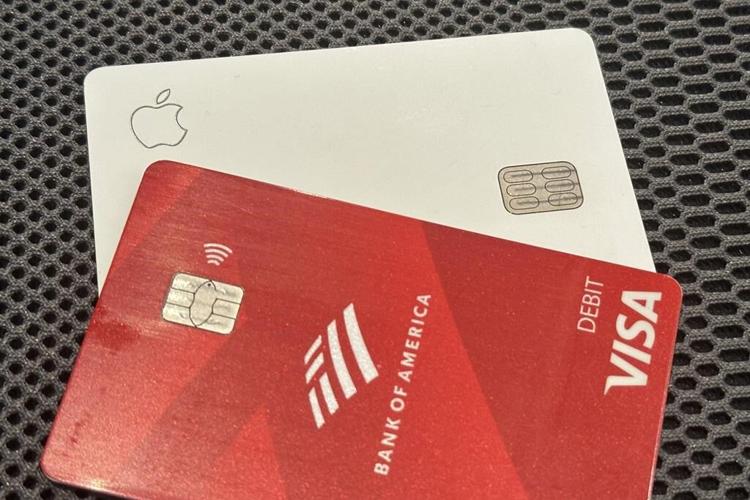NEW YORK (AP) — The U.S. Justice Department has filed an antitrust lawsuit against Visa, alleging that the financial services behemoth uses its size and dominance to stifle competition in the debit card market, costing consumers and businesses billions of dollars.
The complaint filed Tuesday says San Francisco-based Visa penalizes merchants and banks who don't use Visa's own payment processing technology to process debit transactions, even though alternatives exist. Visa earns an incremental fee from every transaction processed on its network.
According to the DOJ's complaint, 60% of debit transactions in the United States run on Visa’s debit network, allowing it to charge over $7 billion in fees each year for processing those transactions.
“We allege that Visa has unlawfully amassed the power to extract fees that far exceed what it could charge in a competitive market,” said Attorney General Merrick B. Garland in a statement. “Merchants and banks pass along those costs to consumers, either by raising prices or reducing quality or service. As a result, Visa’s unlawful conduct affects not just the price of one thing – but the price of nearly everything.”
In a statement, Julie Rottenberg, Visa’s general counsel, said the lawsuit doesn’t take into account the “ever expanding universe of companies offering new ways to pay for goods and services.”
“Today’s lawsuit ignores the reality that Visa is just one of many competitors in a debit space that is growing, with entrants who are thriving,” Rottenberg said. She added the lawsuit is “meritless” and the company will defend itself “vigorously.”
The Biden administration has aggressively gone after U.S. companies that it says act like middlemen, such as and the real estate software company , accusing them of burdening Americans with nonsensical fees and anticompetitive behavior. The administration has also brought charges of monopolistic behavior against technology giants such as Apple and Google.
“In some of the Justice Department’s antitrust enforcement actions, the harm caused by the alleged illegal conduct is more visible: higher prices for air travel, for concert tickets, for smartphones,” Garland said during a news conference in Washington on Tuesday. “The harmful effects of Visa's alleged anticompetitive conduct is less visible, but they are no less harmful.”
According to the DOJ complaint, filed in the U.S. District Court for the Southern District of New York, Visa leverages the vast number of transactions on its network to impose volume commitments on merchants and their banks, as well as on financial institutions that issue debit cards. That makes it difficult for merchants to use alternatives, such as lower-cost or smaller payment processors, instead of Visa’s payment processing technology, without incurring what DOJ described as “disloyalty penalties” from Visa.
The DOJ said Visa also stifled competition by paying to enter into partnership agreements with potential competitors.
In 2020, the DOJ , calling it a monopolistic takeover of a potential competitor to Visa’s ubiquitous payments network. That acquisition was eventually later called off.
Visa , saying in a regulatory filing it was cooperating with a DOJ investigation into its debit practices.
Since the pandemic, more consumers globally have been shopping online for goods and services, which has translated into more revenue for Visa in the form of fees. Even traditionally cash-heavy businesses like bars, barbers and coffee shops have started accepting credit or debit cards as a form of payment, often via smartphones.
KBW analyst Sanjay Sahrani said in a note to investors that he estimates that U.S. debit revenue is likely at most about 10% of Visa revenue.
“Some subset of that may be lost if there is a financial impact,” he said. Visa’s “U.S. consumer payments business is the slowest growing piece of the aggregate business, and to the extent its contribution is affected, it is likely to have a very limited impact on revenue growth.”
He added the lawsuit could stretch out for years if it isn’t settled and goes to trial.
Visa during the quarter ended June 30, up 7.4% from a year earlier. U.S. payments grew by 5.1%, which is faster than U.S. economic growth.
Visa shares fell $15.85, or 5.5%, to close at $272.94 on Tuesday.
—-
Associated Press Writer Alanna Durkin Richer in Washington contributed to this report.










































